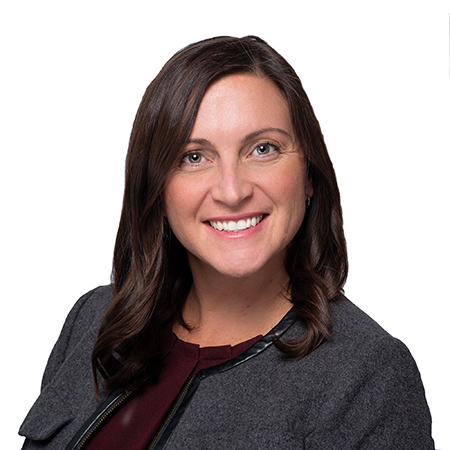On the lighter side of things, we ask Brandi Vandegriff, CTO at Alchemer, what makes her tick.
What would you describe as your most memorable achievement?
I’m going to be very personal for a second. I had a baby in high school, and as a single mom I was the first person in my family to go to college. I got two degrees and made it to CTO by 35. There were a lot of achievements and bumps along the way. I can’t separate them out, it’s the whole chain.

What first made you think of a career in technology?
I was studying to be a lawyer when I took an intro to computing class and did well, but it was the first B I had ever gotten in a college course. I continued studying law, but it was boring. So, I decided I wanted to go back and study computing because it was tough. That’s when I changed my focus to computer information systems instead.
What style of management philosophy do you employ with your current position?
I’m mostly collaborative until a decision is made. Then I hold myself and my team to that decision. Then I hold us to the line that will get us on the path. At that point I get authoritative.
What do you think is the current hot technology talking point?
Dev Ops versus Site Reliability and these float back and forth at different times. Technology-wise, it’s probably Serverless Code.
How do you deal with stress and unwind outside the office?
It sounds so cheesy, but it’s true: I’m solar powered. I try to spend time outside. I love anything to do with water, and I have a beautiful garden that I love to spend time in. The more stressful work gets, the better my garden looks.
If you could go back and change one career decision, what would it be?
I can’t go back and think about that. I’ve left positions where if I’d stayed a little longer, I would have made more money. Or if I’d left sooner, I would have taken a different job. Every one of those decisions along the way got me to where I am today, and I’m very proud of it. So, I wouldn’t choose anything to change.
What do you currently identify as the major areas of investment in your industry?
Easy integration and workflow. I say that because if you’re collecting customer data, it really isn’t useful unless you have a way to do something with it. You can collect a lot of information about your customers, but you have to act on it if you want them to feel heard. You need to easily integrate their feedback into your existing systems and workflow it so you can close the loop.
What are the region-specific challenges when implementing new technologies in North America?
This is less technical and more to my legal background. When creating software throughout my career, when California’s rules on collecting data get tight then New York’s get tight, and places like Alabama really don’t care that much. You really need to watch the very tightly regulated areas of the country to understand how you can collect, store and retain data as it relates to our platform. It’s less about the AWS region than it is about the legal posture of the region.
What changes to your job role have you seen in the last year and how do you see these developing in the next 12 months?
Specific to me and my role, I really enjoy a culture that I can be directly engaged with on a daily basis. I like talking to the developers at their desks and walking through the office to understand who on my team is having a challenge, so I can help. In the last year, I’ve had to adapt my leadership style and find new ways to carry my message across the organization to get everybody on the path to doing something great. To be honest, it’s a lot harder for me that way. However, I see that in the technical market, people don’t have to go back to the office, and anyone who leads like I do has to find a way to get that level of engagement without being physically near somebody else.
What advice would you offer somebody aspiring to obtain a C-level position in your industry?
The best way to become a C-level position in the Voice of the Customer industry or technology in general is to really understand business and how business works. Because unless you do, you will always be creating a product or technology that is based on what you can technically build. But that doesn’t do anybody any good unless it suits the needs of a business or what you’re trying to be as a business. A C-level leader needs to understand the different facets of a business before they can be effective at the C-level.


